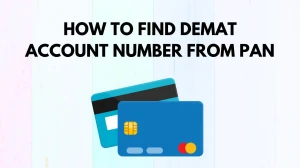
How to Negotiate With Debt Collectors? How to Settle for Less With Debt Collectors?
When dealing with collection debt, explore structured plans, lump sum payments, or negotiations for reduced settlements, starting conservatively and confirming your ability to meet new terms before finalizing agreements.
by Sangamithra
Updated Aug 22, 2023
On This Page
- How to Negotiate With Debt Collectors?
- Negotiating With Debt Collectors
- How to Settle for Less With Debt Collectors?
- Can You Negotiate With Debt Collectors?
- How to Settle a Collection for Less?
- Will a Collection Agency Settle for Less?
- Is Negotiation Always the Advisable Course of Action?
- What is the Typical Percentage of Debt That Debt Collectors Are Willing to Settle for?
How to Negotiate With Debt Collectors?
Negotiating with debt collectors involves strategic steps to alleviate financial burdens:
1. Choose Negotiation Route: Direct negotiation with collectors is key. Collectors have purchased the debt and seek to recover their investment, often bought at a fraction of the balance.
2. Explore Settlement Potential: Debt collectors don't typically anticipate recovering the entire amount, leaving room for negotiation. The American Fair Credit Council notes an average settlement of around 48% of the total owed.
3. Opt for Lump-Sum Payments: Offering a lump-sum payment for a lower debt amount can be effective. Collectors are more likely to agree when a substantial single payment is feasible.
4. Varying Negotiation Terms: Different debt collection companies have varying terms. Some may accept a fraction of the owed sum, while others might demand a higher percentage.
5. Set Payment Limit: Clearly define your financial limit before negotiations commence. This ensures you don't agree to terms beyond your means.
6. Consider Payment Schedule: If lump-sum negotiation isn't feasible, discuss an affordable payment schedule with collectors. A debt settlement program could allow for lower balances and monthly payments.
7. Credit Score Impact: Opting for a lower settlement could result in a "settled" status on your credit report, potentially affecting your score. Paying the entire collection balance has a milder impact on credit.
8. Prioritize Negotiation Skills: The outcome depends on negotiation prowess and the collector's willingness to negotiate. Remember, not all collectors accept less than the full debt amount.
9. Be Persistent: Negotiation may require persistence. Stay focused on your financial goals and maintain open communication with collectors.
10. Understand Consequences: While settling a collection balance is beneficial, both settlement and full payment options have credit repercussions. A fully paid collection account stays on your credit report for seven years from the first missed payment date.
Effectively negotiating with debt collectors requires a thorough understanding of your financial situation and the negotiation landscape.
Negotiating With Debt Collectors
When you are contacted by a debt collector, it is important to know your rights and how to negotiate with them. Debt collectors are private companies or individuals hired on behalf of a creditor, such as a bank or a hospital, to collect a debt that’s gone unpaid for an extended period. Legitimate debt collectors do not make threats or harass those that they contact. Here are some tips that may help you negotiate with debt collectors:
Understand the debt: Begin by learning the big picture of the debt you owe. Debt collectors must provide you with a written “validation letter,” which should spell out exactly the value of the debt, to whom they claim you owe it, and since when.
Know your rights: Before you speak with a debt collector, get familiar with your rights. Debt collectors can only call you between 8 a.m. and 9 p.m., and they can’t harass you or use profane language when speaking to you.
Make sure it’s your debt: Debt collectors could be contacting you in error – more than 37,000 consumers submitted complaints last year that alleged debt collectors had contacted them about debt that was not theirs.
Get some leverage: If you have an account in collection status and you want to take care of it but can’t afford to pay the balance in full, you may be able to negotiate a more affordable payment with the debt collector.
Figure out what you can afford to pay: Even if you can’t get the collector to agree to accept a lower payment, you may be able to work out an arrangement to pay off the debt in installments.
Get the deal in writing: Once you’ve agreed on terms, make sure to get everything in writing before making any payments.
How to Settle for Less With Debt Collectors?
If you're facing difficulties repaying a debt that's in collections, there are three primary avenues to explore:
Craft a Structured Payment Plan: This approach permits you to establish a payment schedule and amount that aligns with your financial capabilities. You can reach out to the debt collector via phone or written communication to propose this plan. Should the collection agency concur, it should furnish you with a formal agreement outlining the arrangement. It's essential to verify the accuracy of the terms before initiating any payment. This method aids in gradually eliminating the debt in a manageable manner.
Clear the Debt with a Single Payment: If you receive an influx of funds from sources like a tax refund or inheritance, or if you embark on an effort to earn the required sum, you can opt to pay off the entire debt in one lump sum. Prior to pursuing this route, assess whether it aligns with your overall financial circumstances. Weigh the advantages and disadvantages of channeling funds to eliminate the debt versus potential sacrifices for other expenses. Paying off the debt in full swiftly relieves you of the collection burden, but ensure you secure a written agreement before proceeding.
Negotiate Debt Settlement: This alternative involves engaging in negotiations with the collection agency to agree upon a payment that is less than the total owed. Through written correspondence, you and the collection agency can finalize an agreement where the debt is recognized as "paid in full" or "paid as agreed," even at a reduced amount. Although the account remains on your credit history, its negative impact might lessen over time.
When interacting with a collection agency, it's prudent to commence negotiations with a modest offer. Begin by suggesting a fraction of the owed amount, perhaps around 20 to 25 cents on the dollar. Gradually increase your offer to 50 cents and then 75 cents on the dollar. If you're presenting a lump sum or alternative repayment terms, ensure you can adhere to the revised payment conditions.
Can You Negotiate With Debt Collectors?
Yes, you can negotiate with debt collectors to reach a settlement or better repayment terms for the debt you owe. Negotiating with debt collectors can be a proactive approach to resolving your debt situation and potentially reducing the amount you have to pay. Here are the steps to negotiate with debt collectors:
Assess Your Finances: Before initiating negotiations, take a clear look at your financial situation. Determine how much you can realistically afford to pay toward the debt.
Communication: Reach out to the debt collector, preferably in writing, to express your willingness to negotiate and settle the debt. Explain your financial hardships and your desire to resolve the debt.
Start Low: When making your initial offer, consider starting with a lower amount than what you can actually afford to pay. Debt collectors may counteroffer, so giving yourself room to negotiate is important.
Request Debt Validation: As mentioned in the article you provided, request proper documentation validating the debt from the collector. This helps ensure that the debt is accurate and legitimate.
Be Polite and Respectful: Maintain a respectful and professional tone in all communications with the debt collector. Avoid aggressive or confrontational language.
Get Agreements in Writing: If you and the debt collector come to an agreement, make sure you receive a written agreement that outlines the terms of the settlement or repayment plan. This will help prevent any misunderstandings later on.
Keep Records: Keep thorough records of all communication with the debt collector, including letters, emails, and notes from phone conversations. This documentation can be helpful in case there are disputes or discrepancies.
Negotiate Payment Terms: In addition to settling for a reduced amount, you may also negotiate the terms of repayment. This could include agreeing on a lump-sum payment or a structured payment plan that fits your budget.
Stay Persistent: Negotiations might take time, and you may need to follow up with the debt collector multiple times. Be patient and persistent in your efforts to reach an agreement.
Know Your Rights: Familiarize yourself with your rights as a consumer under the Fair Debt Collection Practices Act (FDCPA). Debt collectors are legally required to treat you fairly and refrain from using abusive or harassing tactics.
It's important to note that not all debt collectors may be willing to negotiate, and the outcome of negotiations can vary. If negotiations are successful and you reach an agreement, ensure that you follow through with your end of the deal. Once you've paid the agreed-upon amount, confirm that the debt is considered satisfied and that there are no outstanding obligations.
Keep in mind that settling a debt for less than the full amount may have implications for your credit report and score, so it's important to consider the potential consequences before making a decision. If you're unsure about negotiating with debt collectors, you may want to consult with a financial advisor or credit counseling agency for guidance.
How to Settle a Collection for Less?
Setting a collection for less than the full amount owed, often referred to as a "settlement," involves negotiating with the debt collector to reach an agreement where you pay a reduced sum to satisfy the debt. Here's how you can go about settling a collection for less:
Assess Your Financial Situation: Before initiating negotiations, evaluate your financial situation to determine how much you can realistically afford to pay as a lump sum settlement. Consider your income, expenses, and any other financial obligations.
Request Validation: As mentioned in the article, ask the debt collector for proper documentation validating the debt. This includes details like the original creditor, the amount owed, and the timeline of the debt. Having accurate information is crucial during negotiations.
Prepare to Negotiate: Reach out to the debt collector, preferably in writing, to express your willingness to settle the debt. State that you're facing financial hardship and would like to explore the possibility of settling the debt for a reduced amount.
Start with a Lower Offer: When making your initial offer, aim to start at a lower amount than what you can actually afford to pay. Debt collectors may counteroffer, so giving yourself some room to negotiate is important.
Communicate Clearly: Maintain open and respectful communication with the debt collector. Explain your financial circumstances and your intention to settle the debt. Be honest about your financial difficulties but also demonstrate your commitment to resolving the issue.
Get the Agreement in Writing: If you and the debt collector reach a settlement amount that both parties agree on, ensure you receive a written agreement detailing the terms of the settlement. This should include the amount to be paid, the method of payment, and a statement that the payment will satisfy the debt in full.
Keep Records: Throughout the negotiation process, keep detailed records of all communications, offers, and agreements. This documentation can be helpful if there are any discrepancies in the future.
Make Payment: Once you've agreed on a settlement amount and have the agreement in writing, proceed with making the payment according to the agreed-upon terms.
Confirm Debt Satisfaction: After making the payment, confirm with the debt collector that they consider the debt satisfied. It's important to ensure that the settlement is properly recorded and that the debt will not be pursued further.
Monitor Your Credit Report: After settling the debt, monitor your credit report to ensure that it accurately reflects the updated status of the debt. It might take some time for the credit reporting agencies to update your information.
Remember, settling a debt for less than the full amount may have some impact on your credit score, as the account may be reported as "settled" rather than "paid in full." However, this impact is often less severe than leaving the debt unresolved or in collections.
It's also worth noting that some debt collectors are more willing to negotiate settlements than others. If you find that negotiations are not successful with one collector, you might explore options with a different collector or creditor.
Will a Collection Agency Settle for Less?
Certainly, there is a possibility that a collection agency might agree to accept a lesser amount than the full outstanding balance to settle a debt. Engaging in negotiations with a collection agency for a reduced settlement is a common practice. However, the decision to settle for less depends on various factors, including the collection agency's policies, the nature of the debt, and your negotiation skills.
While some collection agencies may be open to settling for a reduced amount, it's important to approach such negotiations carefully. You can initiate discussions with the collection agency to explore the option of reaching a mutually agreeable settlement. Keep in mind that settling for less could have implications for your credit report, so it's advisable to thoroughly understand the terms and potential consequences before making a decision.
Is Negotiation Always the Advisable Course of Action?
While opting for debt negotiation could result in paying a reduced amount compared to your original debt, settling the debt in full remains a more advantageous choice if your financial situation permits it. By paying off the full amount, you avoid having a "settled" status on your credit report and circumvent the need to navigate debt collector interactions or dedicate time to understanding your legal rights and obligations.
Furthermore, you can experience personal satisfaction and a sense of accomplishment by fulfilling your financial commitments. The Consumer Financial Protection Bureau (CFPB) suggests consulting with a legal professional to explore the statute of limitations in your state before making payments on a past-due debt that's in collections.
The statute of limitations defines the timeframe, typically spanning from three to six years, during which you can be legally pursued to recover outstanding debts. If your debt is nearing the end of its statute of limitations, a debt collector might be more inclined to negotiate favorable terms to resolve the debt.
What is the Typical Percentage of Debt That Debt Collectors Are Willing to Settle for?
On certain occasions, there's a possibility of negotiating settlements well below the average of 48%. Particularly for aged debts, collectors might agree to settlements as low as 20% or potentially even lower. It's worth noting that the commencement of the statute of limitations is counted from the initial delinquency date of the debt.
This means that as time passes, collectors could be more inclined to reach agreements on reduced settlements due to the aging of the debt. As such, if you're dealing with outstanding debts, exploring the option of negotiations with collectors could yield significant reductions in the amount you need to repay.
How to Negotiate With Debt Collectors - FAQ
1. Can I negotiate with debt collectors?
Yes, negotiating with debt collectors is possible to reach better repayment terms or settlements.
2. What percentage of the debt can I settle for?
Debt collectors may settle for percentages lower than the owed amount, sometimes as low as 20% or less.
3. Is negotiation always the best choice?
Negotiation is beneficial if your financial situation allows; paying in full avoids credit impacts and collector interactions.
4. Should I consult a lawyer for negotiation?
It's advisable to consult a lawyer, especially to understand statute of limitations, before settling a past-due debt.
5. Do collection agencies settle for less?
Collection agencies might agree to reduced settlements, but outcomes vary based on factors like debt age and negotiation skills.




